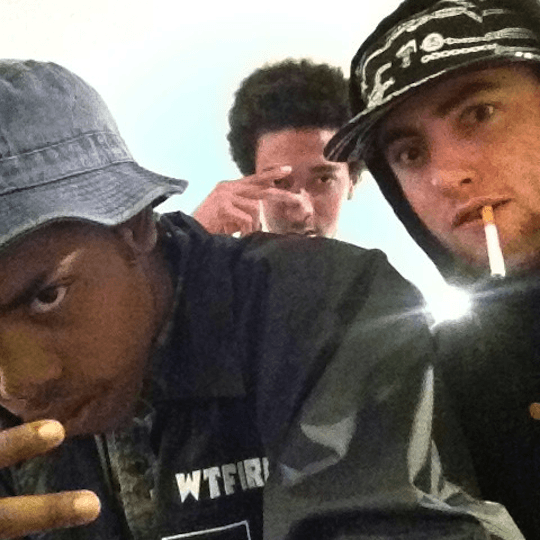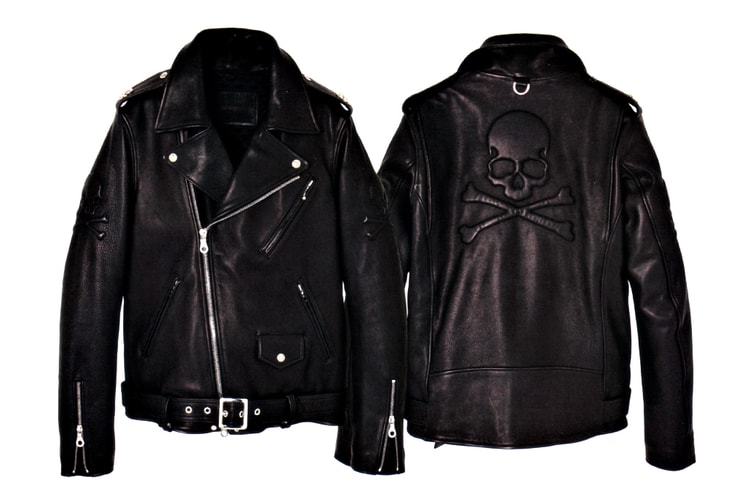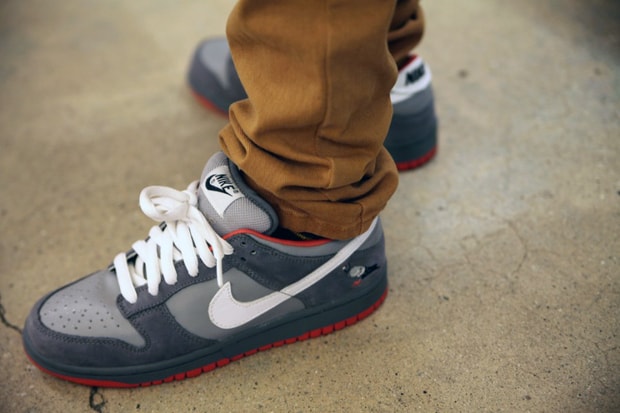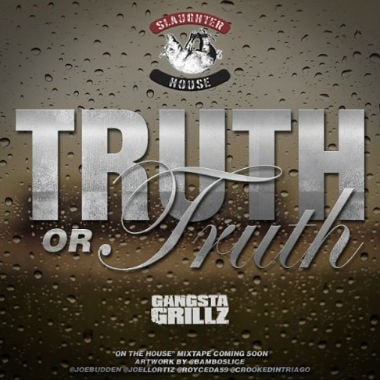HYPETRAK INSIGHTS with Peter Bittenbender, Co-founder of Decon Records
Peter Bittenbender has at least on at least one occasions described the culture at Decon Records
Peter Bittenbender has at least on at least one occasions described the culture at Decon Records as, “A group of talented individuals who never sleep,”. Bittenbender’s company perhaps serves as an allegory for himself. As he sat in Decon’s conference room, taking questions for our music industry-related HYPETRAK INSIGHTS series Peter’s eyelids, a little red and drawn with bags, subtly hint at sleep deprivation, but nothing else would give it away. Decon continues to produce ideas and generate projects that even the most well rested people would be impressed with. Peter’s extremely optimistic about the future of music, “It’s a good time to be an artist today,” he said. “There are so many tools at your disposal. A lot of artists don’t want to sign to labels. They want to do it on their own terms.” With that optimism, Decon carries the energy of a fledgling upstart even as they head into the tenth anniversary of the first project Decon co-founders Peter Bittenbender and Jason Goldwatch collaborated on. Citing both necessity and a lack of attention span as the reason, Bittenbender has extended both his an his companies influence far beyond the traditional roles of a record label or production company. The self-dubbed name of idea shop fits the company’s amorphous nature very aptly. Along the lines of the allegory, Bittenbender himself functions in a number of versatile manners. He can speak quickly and intelligently on the subject of his work, and then slow down his mannerism for rhetorical emphasis. He has fun when we needs to and works hard at every other point. This adaptability has carried over to Decon and might be one of the reasons the company is thriving. Another would be the (in its label function) the company’s alternative business model’s which earn profit through licensing the music of their artist, instead of relying on ever decreasing record sales, all of these fitting in to the “allegory that Bittenbender is for Decon.” – By Ali Breland.
You’re eating Mexican food right now. You’ve said you’re really into food, does that give you creative inspiration?
Peter Bittenbender: We all work so hard at Decon. We’re all so busy, one of the few things that really gets me excited when you’re having a stressful day is to go have food. It doesn’t need to be expensive. It doesn’t need to be outlandish. I’m just gonna go to a restaurant with a couple of my homies after a nice day. It’s like a thing that you look forward to. I definitely appreciate going out to new restaurants. New York Magazine just did the cheap eats, which is like the 50 cheapest under 25 dollar meal restaurants in the city, so I made a pact with my brother and my buddies to go to all of them over the next year. We’ve already been to a few of them. You have something to think about all day and that’s a good meal at the end of the day. Not the most exciting thing, but who doesn’t like good food right?
You call Decon an Idea Shop. Define that.
The whole company has been built on being really progressive creatively. We work with companies that are brands. We work with companies that are brands. We work a Reebok or a Nissan or even a 2k Sports. They’re coming to us for our ideas. They’re coming to us for our perspective and what we think is cool. Having that Idea Shop definition because we do so many different things is a way for us to grab on to it, and think, “They’re going to come up with ideas for us. They’re going to execute them.” We’re actually in the process of rechanging some of the brand language right now. We’re growing and learning what works and what doesn’t. Saying you’re like a full service creative agency or hybrid media shop, they’re so many catchphrases that are out there. We thought that this was just a simple one. It was broad and open ended enough, but you still got it in a second. It’s easy to say you’re a production company. It’s easy to say you’re a record label. If you start saying you’re an agency, people kind of don’t know what that means unless you sort of add a lot of adjectives before it [like] “full-service” and “hybrid,” and “digital,” or whatever the words maybe. If you say you’re an idea shop, it’s like just a bunch of creative people than can be applied to almost anything.
Your company, Decon, is an example of a growing trend of fusion companies where they offer a lot of different kinds of services that usually aren’t offered together. Kitsune does something similar with music and fashion, and the list goes on. Why did you guys decided to do that and why is that becoming more common?
We’ve been doing it out of necessity since we started 10 years ago. The trends happening now are exciting to see because a lot of people are starting to catch up to this model. It makes sense. People today are really creative, they have short attention spans. They like to do twenty different things, because it keeps them more creative. If you think about it, just running a record label as a business everyday, it would probably get a little stale at times. [Now] I can jump over to production or work on Mass Appeal or all these different things. It all kind of leads to the best creative output.
What you do with the record label in how you make money is pretty innovative. 1) How did you make it your focus to make money out of alternative revenue streams and 2) What you think the future of major labels are, who aren’t doing what you guys do?
For us, it was out of necessity. We never had access to big artists. Pusha T is one of the artists that’s been very successful sales wise. We’re fortunate enough to have access to a lot of great music and content opportunities. It just made sense if you’re gonna invest all this money into these artists, and a lot of these guys are my friends, people that I want to support no matter how I can. Getting them and getting Decon more money than just selling a piece of plastic or a digital file has always been a part of the DNA of how we run the label simply because every independent label is trying to do, and some majors trying to do it. You can’t survive at this level when you’re selling, 10, 15, 20 thousand CD’s. On the CD alone with an office and overhead, you need licensing. You need to get your artist in front of brands. Plus it’s great for your artist. Forget the money side of it. It’s cool if you can bring your artist a TV commercial that they’re going to have their song featured in, or if you have an artist doing an original song for a video game, or one of one of the dozen things we think up.
How did you guys come into all these opportunities? You seem to have better connections than a lot of other people.
We have a pretty wide network of people we work with. It’s really about awareness. If you’re just a label, you’re probably not as well known in the advertising world as if you’re a label and if you’re working in the advertising world simultaneously. There’s a lot of great labels that because they put out good music, that’s what builds the brand, that’s what builds the interest. For us it’s like yes, we’re putting out great music and that’s sort of the lightening rod. Really the other things that we’re doing help as much as the music we’re putting out. If we put out a great piece of content and it has one of our artists songs featured in it, that has a double benefit. People will look at it and be like, “Oh they not only did the content, they also did the music for it.” It all happened very organically. Opportunities kept coming to us where it made sense for our artists, where it made sense for music to be included and as more and more opportunities came to us for music, obviously it made sense to use our own artists. Sometimes we use artists outside of our Decon family, simply because they want something electronic or they want something we maybe don’t have a song that fits. We don’t have the same huge advances that these companies have, so we need to bring our artists more revenue opportunities than just sell your CD and put it up on iTunes. That can’t be it. Licensing today is one of the more important things if you look at Billboard. They do their 100 of the best ways to expose your music every year. I think out of the top 10 or 15 sort of places that you can get exposure, most of them are either film or Television. That has the biggest impact. Look at fun. for example. They got the Super Bowl ad. That’s an example where a band gets the right placement with the right song. Their whole life is defined by that. Not forever, but at least right now, that’s what people know them for. So we’re hoping and keep opening as many doors as possible so that one day we’ll get one of those types of huge game changing opportunities for like Mad Men, for RJ[D2] and Aceylone.
Alexander Spit is your most recent signee right now, correct?
Him and Boldy James.
What plans do you have for these kind of upstarts?
I think for us it’s an interesting time in the history of our label. We have so many artists on the label that are legendary credible artists that we want to keep supporting, but there’s this new wave of, in my opinion, extremely talented artists. We always want to remain as that company who is picky about who we choose, and who we partner with. We don’t even call it signing, it’s like collaborating with, is the phrase we use. We never say, “Hey we signed an artist. ” We don’t do deals that are traditional. We don’t do 360 deals. We don’t do deals where we sign an artist for five albums. We do collaborations. If you want to collaborate with us on a project, great, and if that collaboration goes well then we’ll do another one. So it’s a very different model. There’s probably not one other label that does their business like us, which is unique. An artist doesn’t feel like they’re indentured to this company or anything. With somebody like Alexander Spit, I met him. He’s an amazingly talented kid. He does his own artwork, produces, raps, and is really hardworking. He has a song called Best Night Ever, which I fell in love with and this other song called A Breath Taking Trip to the other side. Both are out on the web. You can check them out. I think he has the potential to be really big. When we partnered with Jay Electronica, and when we put out Exhibit C and Exhibit A. We were there when Jay blew up and did the Roc-Nation partnership. When all that stuff happened, for me, that was the first time I had really found an artist that I thought, okay this guy could really blow up. He could be a huge star. Alexander Spit is definitely one of the guys who we’re currently working with who I think has the potential to really kind of transcend underground. We’re just giving him the creative space to make the best record he can. He has an EP coming out in a couple weeks. Then there will be [his] LP coming out later this year. He’s got a remix coming out with Juicy J and Mr. Mothafuckin eXquire. We’re trying to get him in the studio with people, because he’s an amazing producer. So just spreading the word is pretty much what we’re doing with that.
What’s the general process of building an artist to that sort of status in the way you did with Jay Electronica?
We I mean with Jay, I can’t really take all that much credit because he had a very defined plan. We obviously helped him. We were one of the few people to believe in him early. We shot a lot of amazing content and we helped him across the road. For me, I think it’s about fostering the artist’s own creativity, and these guys are smart enough today to know what it takes to become successful. It’s about having a team of people to guide that vision. It’s not necessarily, “Hey you have to do x,y,z and go into this box.” They definitely need direction and want guidance, but when it comes to creative stuff, these artists have seen what Odd Future just did, with how they just did it their way and didn’t compromise anything creatively. The real artists are inspired by people like that. We’re hear to bring something to the table they previously didn’t have. Radio, great quality music videos, content, PR, tour opportunities. We’re there to get their music to the largest group of people possible. That’s applying global distribution and money to help pay for everything. Giving them the freedom to make great music and then we come on a team to help promote it to the universe. That’s how we’re working with these guys now.
When you and Jason Goldwatch started the company all the way back in 2002, what was your original intent with the company?
It’s actually about to be the 10th Anniversary of the first project we released. To be honest, this company has evolved and it’s still evolving every single day. Jason always says the same thing, we never set out with any clear vision of, “Oh, we want to build this hybrid media company.” It was nothing like that. We made this movie, we had a soundtrack. We didn’t have any money, so we did the art and we did the marketing. We pulled all of our friends, we called in all of our favors and then when it came out as successful, people started calling us from companies and from creative agencies being like, wow that was a cool project, who did it, and they weren’t really sure. I would tell them I art directed the packaging and did the marketing. Jason directed it and edited it. I did the marketing. Very quickly we started getting companies calling us. Def Jam would call us and say, “We want you to shoot something with Ludacris,” or 2k Sports would call us and say, “We want you to do original music for the video game.” So there was never really a vision. We wanted to be in production; Jason was a director of course so it’s important that you’re going to have that as a production part as a keystone of the business. The label happened completely organically. Sony Red at the time was our distributor. One Big Trip, the project we put out at the time, sold very well. They believed in what we were capable of doing, so they gave us money and said, “Hey, who else would you sign?” We tried signing a couple acts we really believe in, and years later we’re still signing acts we really believe in. Someone took a chance on us pretty much, and we’re very lucky that it worked out because I love being in the music business. A lot of people say you’re crazy, you probably make no money in the music business, but hey, even if we break, even if we make a little bit of money, it’s not about that. It’s about supporting these artists. If Decon goes away, that’s another outlet, a very important one right now that supports a lot of artists. If those artists don’t have a home, where do they go? There’s not a lot of labels anymore that are growing and pushing the bounds in the independent space. There’s a lot of labels maintaining, but there are few that are actually growing in the business.
Nick Catchdubs of Fool’s Gold has said things really similar to that. Do you guys see yourself relating to other companies like Fool’s Gold and labels like that?
For sure. We’ve talked about doing stuff with A-Trak and Fool’s Gold and different labels where we all need to help each other. There’s a band of these indepent labels that are trying to push the culture forward and also, you know, make money. There’s labels I respect that are really successful like XL, Downtown, and Glassnote. Some of these labels are still independent and still are indie to the core, but they’re running a real, serious business doing tens of millions of dollars a year doing revenue. I think the labels that are a step beneath that, The Fool’s Golds, The Rhymesayers, The Decons, there are dozens of them, but it’s competitive but we all appreciate the fact that there’s someone out there with the same vision for the music industry. When Rhymesayers puts out a record or Fool’s Gold puts out a record, we’re helping promote their stuff, and vice versa, they’re helping promote our stuff. If the business is going to continue and move, it’s going to be because of people like us. If we give up, then what’s that say to people who are young who want to try it.
Do you think it’s taking a lot of labels so long to get those returns because they were just so ahead there time, or because what they were doing 5 years ago wasn’t as efficient then as it is now?
I think that’s a good question. It’s definitely a combination of both. Anybody who’s running an independent record label ten years ago and doing it the way that it should it have been has had their time. Today a lot of labels, like how you were saying Kitsune, are built of this model that we can’t just be music, we have to be more. I think there’s a few labels that a long time ago that say we have to get into touring and we have to get into merch. Those are the areas where we’re lacking. There are other labels who maybe don’t have the creative agency or the production company, they’re not launching a Mass Appeal Magazine, or doing the types of things that we’re doing but, they have way better infrastructure for a label from a merch or from a touring standpoint so there’s a give and take on each side of it. I think it’s a little bit of both of what you asked. I think it’s timing, and yeah I think a lot of people were ahead of their time and now the industry is starting to catch up which is exciting.
What specifically is the role of Mass Appeal at Decon?
We were fortunate enough to bring Sacha Jenkins onboard Decon as a partner recently. Sacha wrote at ego trip is a famous author and cultural personality. He came onboard. He was one of the original people at Mass Appeal. We had an opportunity to buy the brand. A few people partnered up to buy the brand, Decon being of them. Decons one of the majority shareholders. The magazine is coming out in October. The website is up right now. We have a huge stockpile of content that we’re about to start putting out. [There’s] content from Goldwatch and a slew of other directors. Mass Appeal was always known as that discerning voice in urban culture and art. For us was it really exciting to think that a brand this legendary, we could bring back and be part of something. That really had such a major impact. I don’t know if you read Mass Appeal, but I read that magazine, like every single issue.
You’re entering a really saturated market with that. What are you doing to come to the top?
I think what’s gonna separate Mass Appeal from the other magazines and other agencies and companies that have magazines as part of their business is that the magazine is the smallest part of the actual business for Mass Appeal. If you look at a pie chart and ask what percentage the magazine is for Mass Appeal, not only in terms of time, but in money invested in it, it’s really small. Where we are for Mass Appeal right now is content play and content channel. We have a Mass Appeal music festival that we’re working on. We’re going to be doing annual Mass Appeal music compilations. We’re having a huge sort of e-commerce play that we’re working on. The goal is really to make it a brand that other brands want to partner with. Nike, Mass Appeal. Chrysler, Mass Appeal. These collaborations really come out of the voice that Mass Appeal is. There wouldn’t be a Complex if there wasn’t a Mass Appeal. The whole team of people that were working at Complex were influenced if not even worked at Mass Appeal, so everybody recognizes the legacy of the brand. For us it’s just about spreading that Mass Appeal name into as many areas as we can that affect culture.
You’ve said that there’s always something hot happening. Whether it be at Decon or just in general, what’s hot right now?
What’s hot? My fucking salsa that I’m eating right now with my burrito is extremely spicy. What is seriously at Decon is that Jason Goldwatch has got his first movie which has been a long time coming. I don’t want to give too many details, but next spring, we’ll be officially shooting Decon’s first feature film. We have Steven Schnieder who is the Executive Producer and creator of Paranormal Activity franchise as our business partner. William Morris is representing us in the deal. For Jason it’s huge. He’s been a really critically acclaimed director for years. He’s done so many creative videos, commercials and short films. But like any director, the big screen and making a real feature is always the end goal. Jason is fully focused on his screenplay right now and finishing that. We have money raised already. A guy named Carl Lund wrote it, who’s a pretty well known Hollywood writer. He and Jason have been going back and forth on it. It’s Jason’s story that Carl Lund is helping write. So that’s really exciting. We’re working on amazing stuff right now for Nissan, HBO’s Game Of Thrones. We’re doing some really cool marketing for a few video games that I’m really excited about and Red Bull. We have a couple very big Red Bull initiatives that are going to be launching in 2013 that are like Decon, Red Bull Properties. There’s so many things happening inside of this office everyday. Sacha Jenkins is working on a TV show at Bravo that we’re producing right now. It would be our first network show. It’s something I can’t talk too far about, but we’re spreading our wings into film and televsion which is extremely exciting for us as a production company. We’re about to sign a few directors which I think will really up the terms of who we represent as a production house. And we’re having fun man, it’s summer. We’re taking the company trip down to Wahoo, NJ and Six Flags. We’re gonna get in some trouble and go to Atlantic City.


























